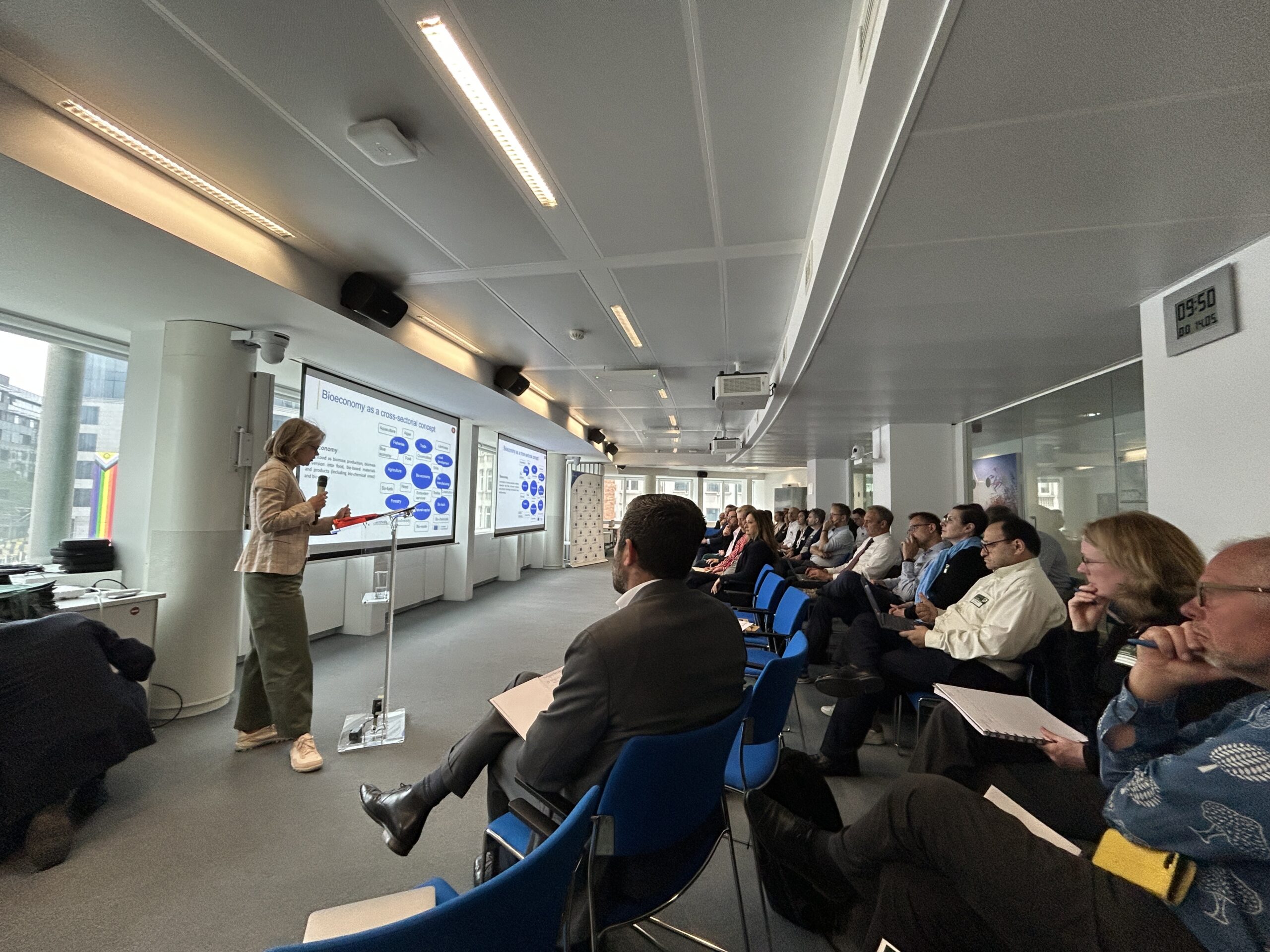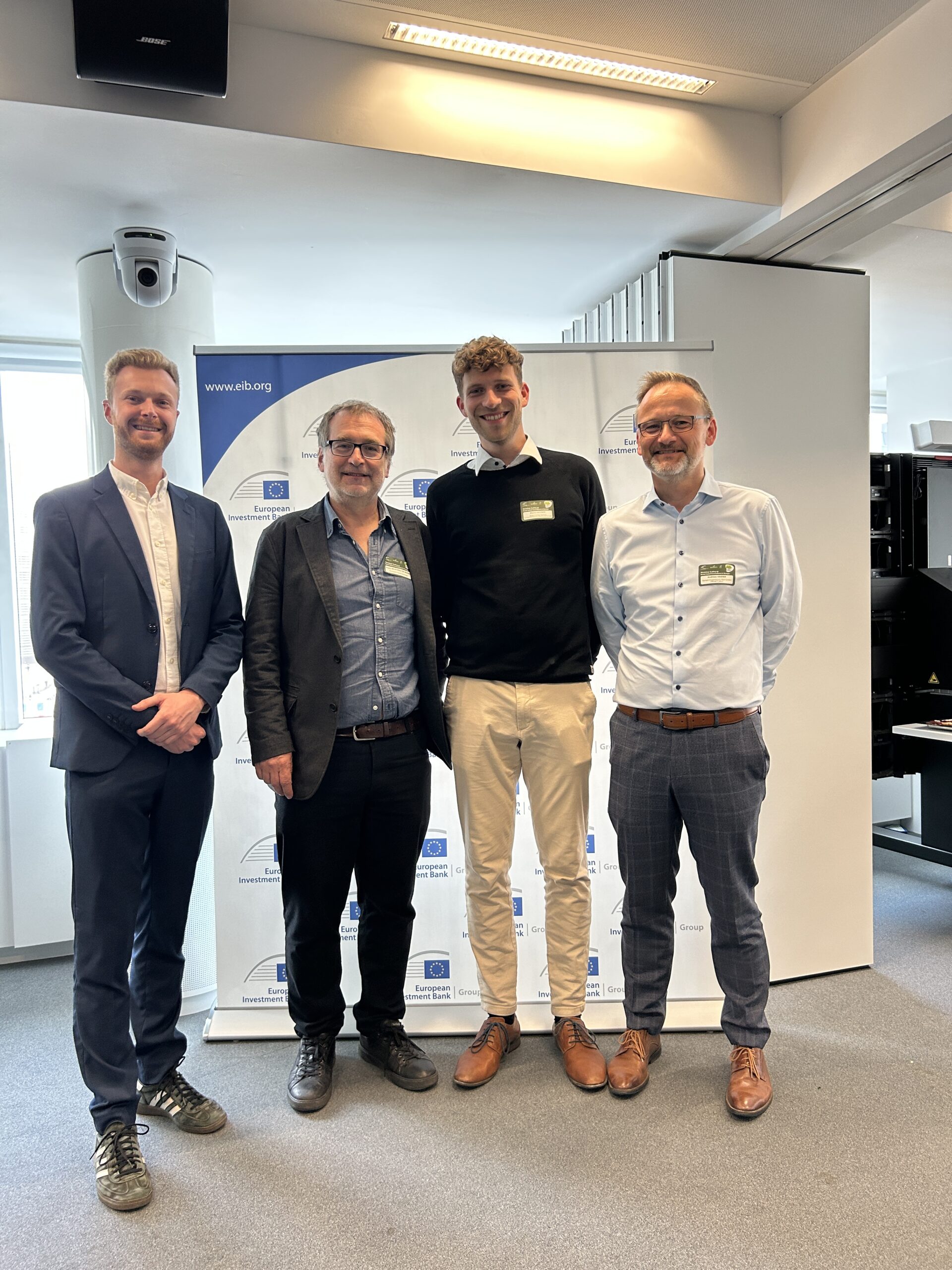The workshop organised within the framework of Bioregions in collaboration with the European Forest Institute, ShapingBio and Pilots4U was dedicated to addressing how the “valley of death” for innovations in the forest-based bioeconomy can be surmounted. In two thematically focused sessions—Infrastructure & Test Environments and Financing & Investment Conditions—key barriers were identified and concrete courses of action were discussed.
Silvija Aile (Deputy Head of Unit Land Use & Management, European Commission) introduced the forthcoming update of the EU Bioeconomy Strategy: its objectives are to foster a more efficient, circular utilisation of biological resources, to establish scalable bio-based industries, and to secure sustainable raw material supplies. The EU aims to position itself unequivocally as a global innovation hub. Aile emphasised that market barriers, fragmentation and financing gaps currently constitute the principal obstacles. Link to presentation
During the Scale-up Experiences session, several companies and pilot initiatives illustrated the range of current challenges:
- • Andrés Mitnik (Strong by Form) discussed the scaling of bio-based construction materials, identifying high entry barriers, hesitant venture capital, and limited pace of material adaptation as critical bottlenecks.
- • Biocon and Biocastanea highlighted the necessity of clearly defined platform technologies, early industrial engagement, and supportive funding mechanisms for CAPEX.
- • CMPC Ventures underscored the importance of well-defined KPIs, interdisciplinary teams, and established exit strategies for project terminations.
In the realm of Infrastructure, Pilots4U and the Bio Base Europe Pilot Plant showcased their open test and demonstration platforms. Both initiatives particularly support SMEs in transitioning from research to industrial scale-up, thus addressing the infrastructural dimension of the “valley of death.”
In the second session, the financing challenges were examined in greater depth:
- • ShapingBio demonstrated that the majority of start-ups scale outside the EU, as regulatory complexity, lack of early-stage financing, and absence of scaling instruments represent central impediments.
- • Representatives of Green Angel Ventures, the European Circular Bioeconomy Fund and the EIB emphasised the necessity of public co-financing, risk-sharing and targeted business-development support.
Conclusion
The discussions reaffirmed key challenges that are also pertinent to the Austrian bioeconomy—particularly with regard to supporting innovation projects in forest-based value chains, developing pilot infrastructures, and accessing scalable financing. Bioeconomy Austria, as a platform for networking, visibility and project initiation, can play a pivotal role in addressing these very gaps.

